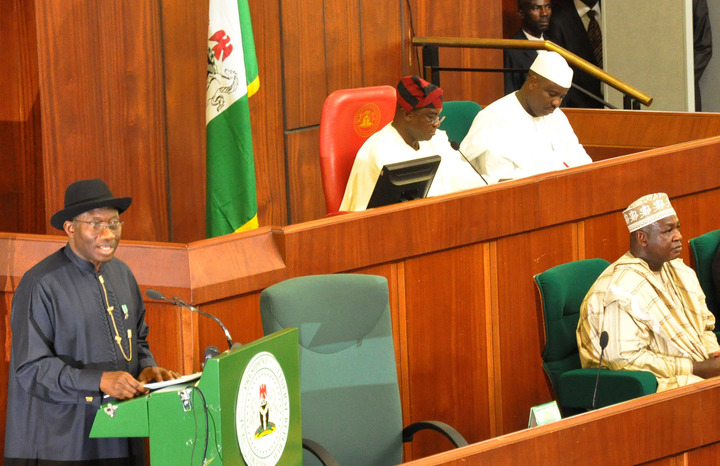
The Chairman of the Senate Business and Rules Committee, Sen. Ita Enang (PDP–Akwa Ibom), on Sunday said the National Assembly would soon resolve the oil price benchmark issue.
Enang, who said this at a news briefing in Abuja, explained that the National Assembly was committed to reaching a common position on the oil price benchmark issue.
He said this was to enable President Goodluck Jonathan present the 2014 budget.
The News Agency of Nigeria (NAN) reports that the two chambers of the National Assembly had been unable to agree on a unified position on the oil price benchmark.
This had been holding back the passage of the Medium Term Expenditure Framework (MTEF).
Enang said the National Assembly was working to ensure that the Federal Ministry of Finance furnishes it with the records of the Excess Crude Accounts funds.
“The two chambers of the National Assembly are cautious to ensure that the MTEF is adopted before the budget was presented, so as to avoid legal issues if laws guiding budget preparations were breached.
“Now, if the President decides to submit the budget without the MTEF, it may raise some legal issues. I think we should be a little patient”, he said.
The senator however said it was not unusual for the legislature to work, agree or disagree on issues of revenue.
“I think that what is happening now on the table of the legislature is not unusual.
“We will soon resolve it and pass what we have to give to Mr President,” he said.
Enang acknowledged that the disagreement between the Senate and House of Representatives could delay passage of the 2014 budget, but argued that it would not affect the economy.
“The Constitution had anticipated this situation. So, it will not affect the economy of the country at all.
“It doesn’t affect salaries. It may only affect capital projects. But then, contracts for most of the capital projects have just been awarded.
“The National Assembly is working the best way it can and there is nothing abnormal in where we are and what we are doing”, he said.
Enang said the Fiscal Responsibilities Act (FRA) provided the procedures for preparation of the budget before the executive presented it to the National Assembly.
He said a strict adherence to the provisions of the law would also eliminate budget-related disputes between the legislature and the executive.
“We should do things according to what our laws have said. Now, both parties have agreed that the appropriate thing should be done.
“We should have the MTEF which the President will now use in preparing the budget. So, the legislature may not have the excuse of either increasing or decreasing the amount of money available.
“This is the appropriate thing to do. As our democracy progresses, we must look at laws and make sure we comply with the laws. It is also to prevent post-budget disputations.
“The federal government, through the Ministry of Finance, should at every point in time make available to us (the National Assembly) the record of the excess crude and tell us what they want to use that money for”, Enang said.
NAN recalls that the Senate had fixed the oil price benchmark at 76.5 dollars per barrel while the House of Representatives had insisted on 79 dollars per barrel. (NAN)



